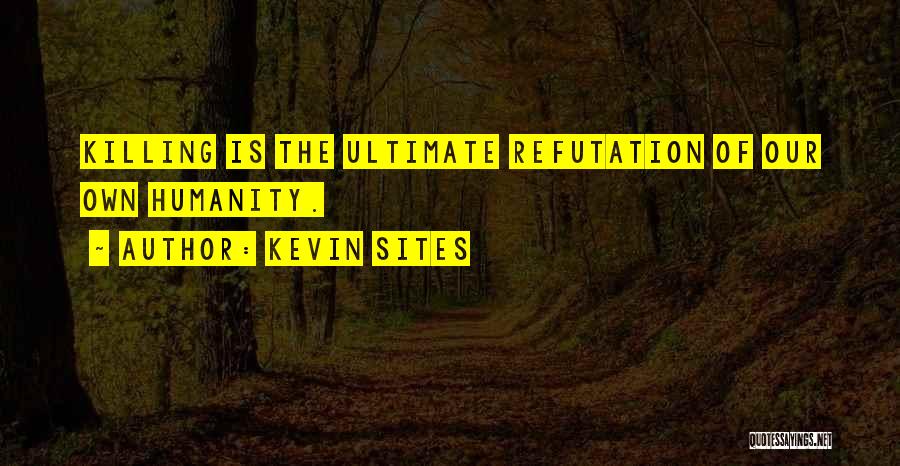Quotes & Sayings About Ptsd In Veterans
Enjoy reading and share 18 famous quotes about Ptsd In Veterans with everyone.
Top Ptsd In Veterans Quotes
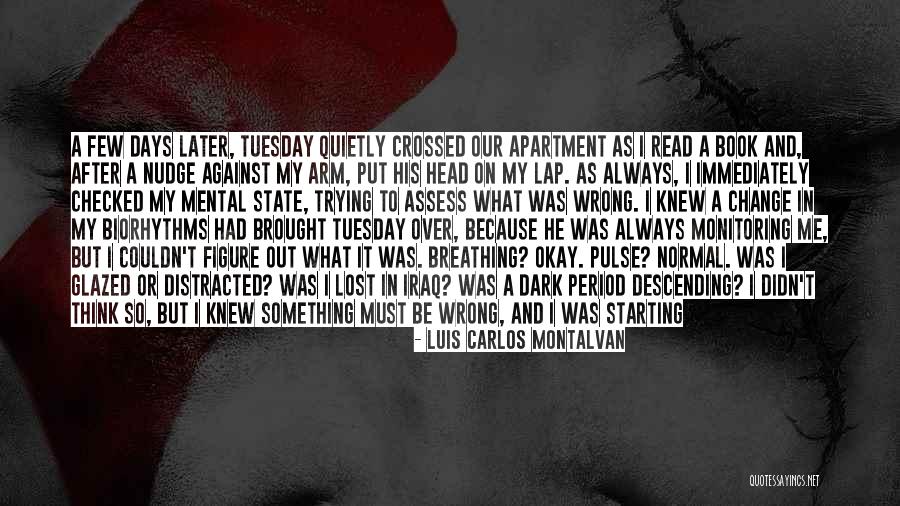
A few days later, Tuesday quietly crossed our apartment as I read a book and, after a nudge against my arm, put his head on my lap. As always, I immediately checked my mental state, trying to assess what was wrong. I knew a change in my biorhythms had brought Tuesday over, because he was always monitoring me, but I couldn't figure out what it was. Breathing? Okay. Pulse? Normal. Was I glazed or distracted? Was I lost in Iraq? Was a dark period descending? I didn't think so, but I knew something must be wrong, and I was starting to worry ... until I looked into Tuesday's eyes. They were staring at me softly from under those big eyebrows, and there was nothing in them but love. — Luis Carlos Montalvan
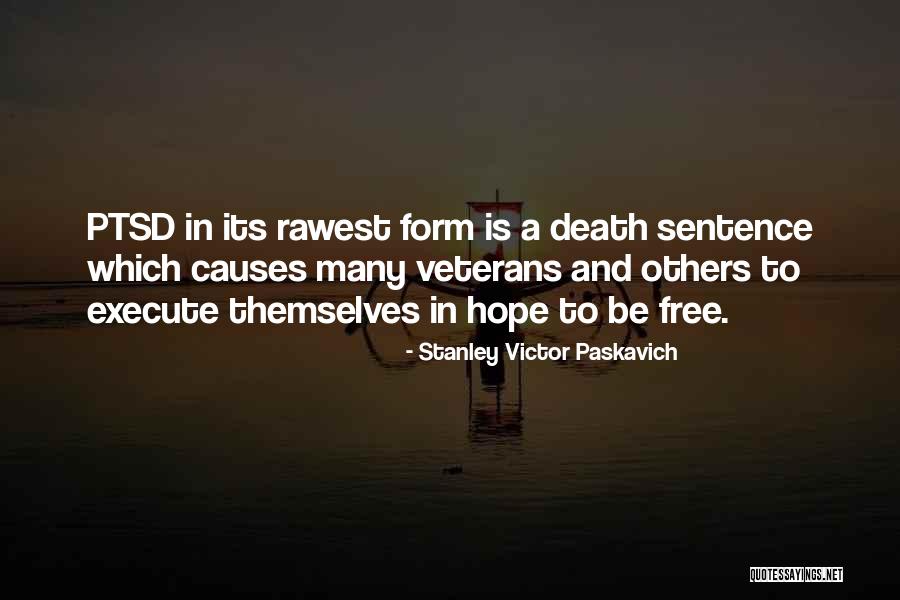
PTSD in its rawest form is a death sentence which causes many veterans and others to execute themselves in hope to be free. — Stanley Victor Paskavich
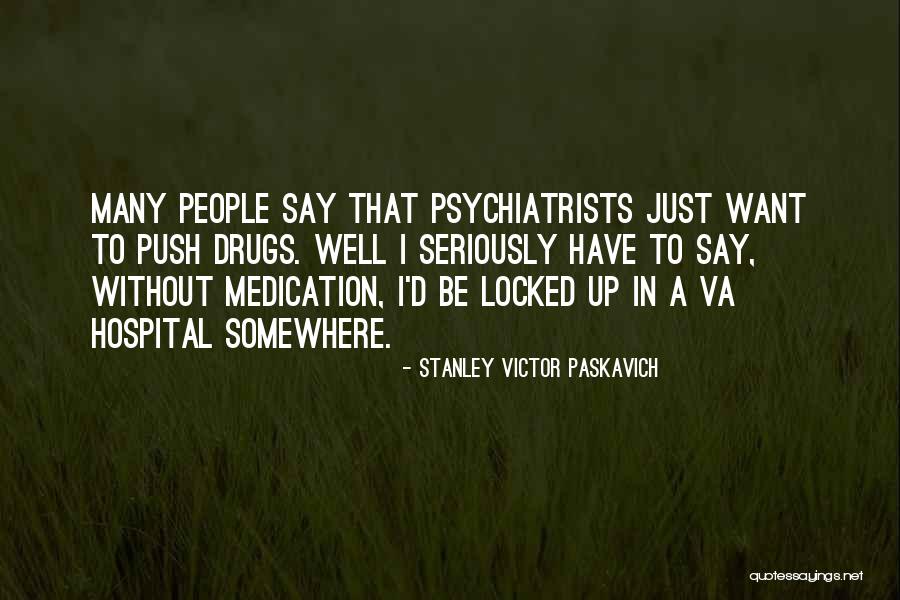
Many people say that psychiatrists just want to push drugs. Well I seriously have to say, without medication, I'd be locked up in a VA hospital somewhere. — Stanley Victor Paskavich
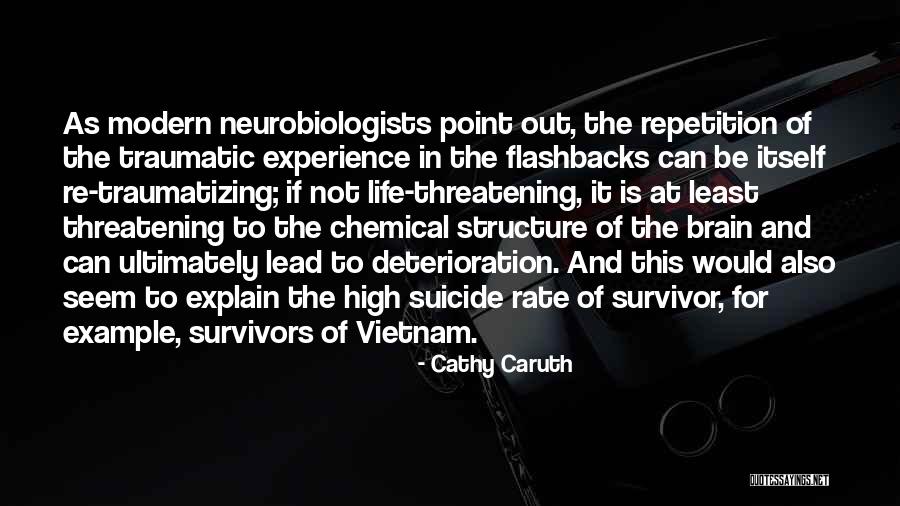
As modern neurobiologists point out, the repetition of the traumatic experience in the flashbacks can be itself re-traumatizing; if not life-threatening, it is at least threatening to the chemical structure of the brain and can ultimately lead to deterioration. And this would also seem to explain the high suicide rate of survivor, for example, survivors of Vietnam. — Cathy Caruth
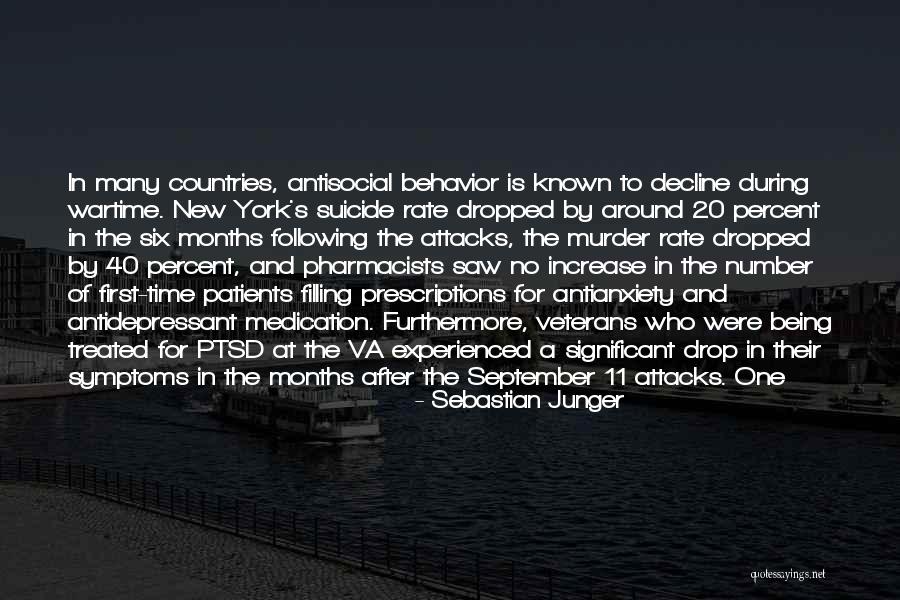
In many countries, antisocial behavior is known to decline during wartime. New York's suicide rate dropped by around 20 percent in the six months following the attacks, the murder rate dropped by 40 percent, and pharmacists saw no increase in the number of first-time patients filling prescriptions for antianxiety and antidepressant medication. Furthermore, veterans who were being treated for PTSD at the VA experienced a significant drop in their symptoms in the months after the September 11 attacks. One — Sebastian Junger
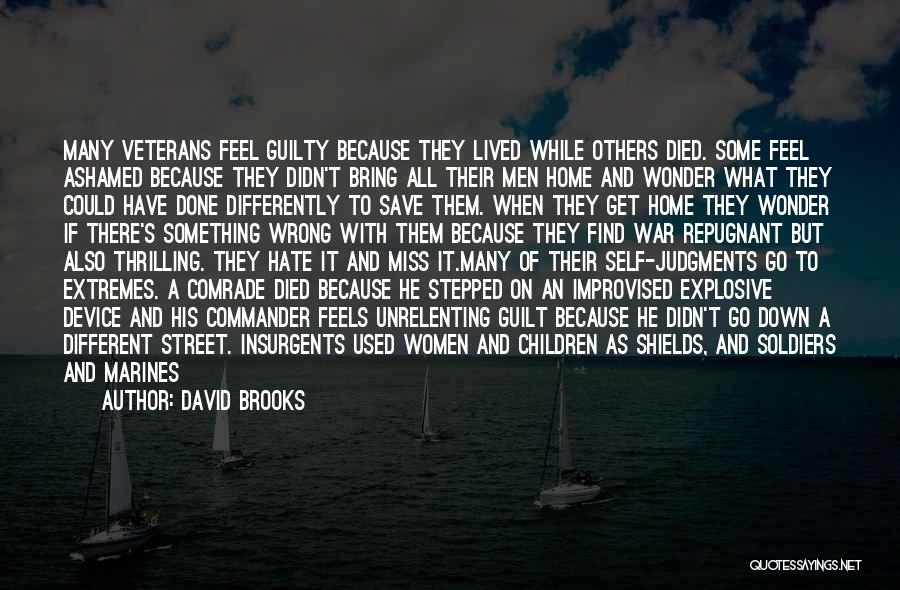
Many veterans feel guilty because they lived while others died. Some feel ashamed because they didn't bring all their men home and wonder what they could have done differently to save them. When they get home they wonder if there's something wrong with them because they find war repugnant but also thrilling. They hate it and miss it.Many of their self-judgments go to extremes. A comrade died because he stepped on an improvised explosive device and his commander feels unrelenting guilt because he didn't go down a different street. Insurgents used women and children as shields, and soldiers and Marines feel a totalistic black stain on themselves because of an innocent child's face, killed in the firefight. The self-condemnation can be crippling.
The Moral Injury, New York Times. Feb 17, 2015 — David Brooks
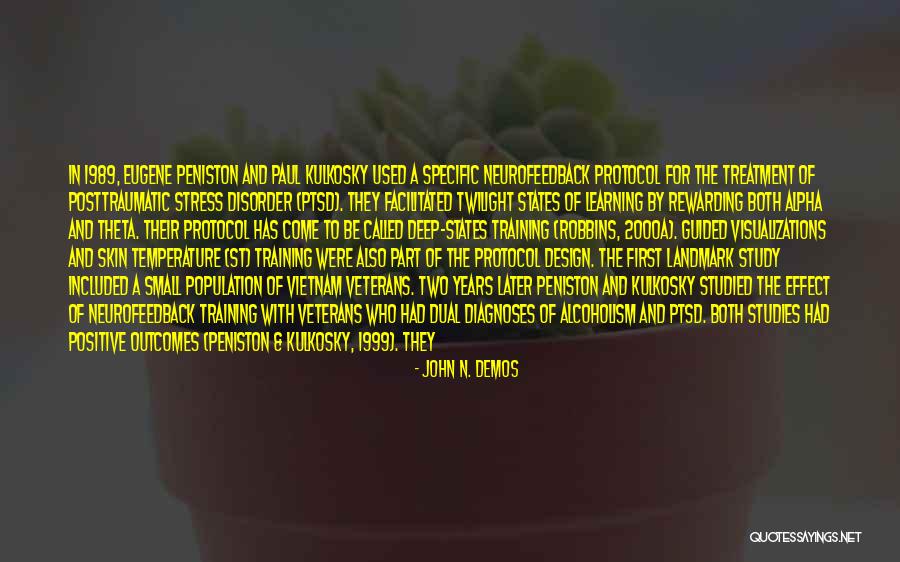
In 1989, Eugene Peniston and Paul Kulkosky used a specific neurofeedback protocol for the treatment of posttraumatic stress disorder (PTSD). They facilitated twilight states of learning by rewarding both alpha and theta. Their protocol has come to be called deep-states training (Robbins, 2000a). Guided visualizations and skin temperature (ST) training were also part of the protocol design. The first landmark study included a small population of Vietnam veterans. Two years later Peniston and Kulkosky studied the effect of neurofeedback training with veterans who had dual diagnoses of alcoholism and PTSD. Both studies had positive outcomes (Peniston & Kulkosky, 1999). They — John N. Demos
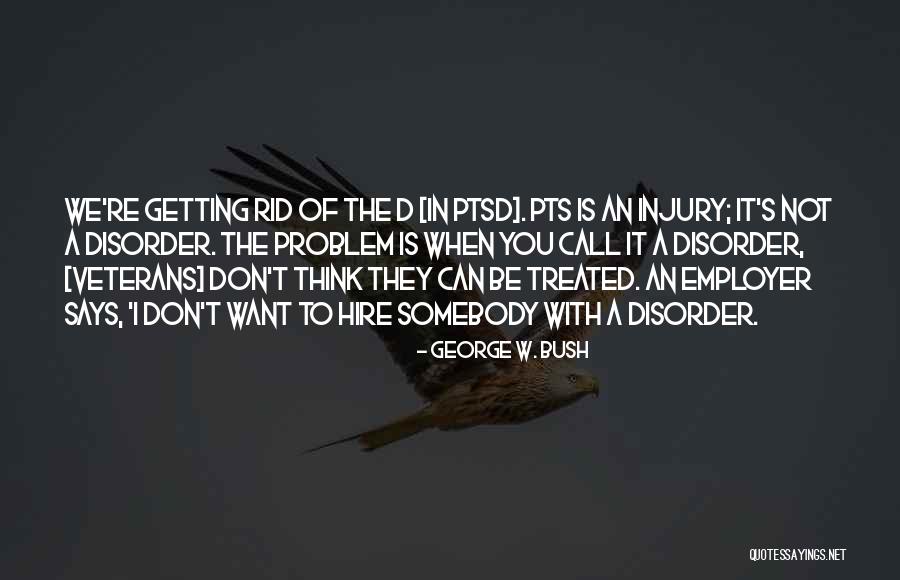
We're getting rid of the D [in PTSD]. PTS is an injury; it's not a disorder. The problem is when you call it a disorder, [veterans] don't think they can be treated. An employer says, 'I don't want to hire somebody with a disorder. — George W. Bush
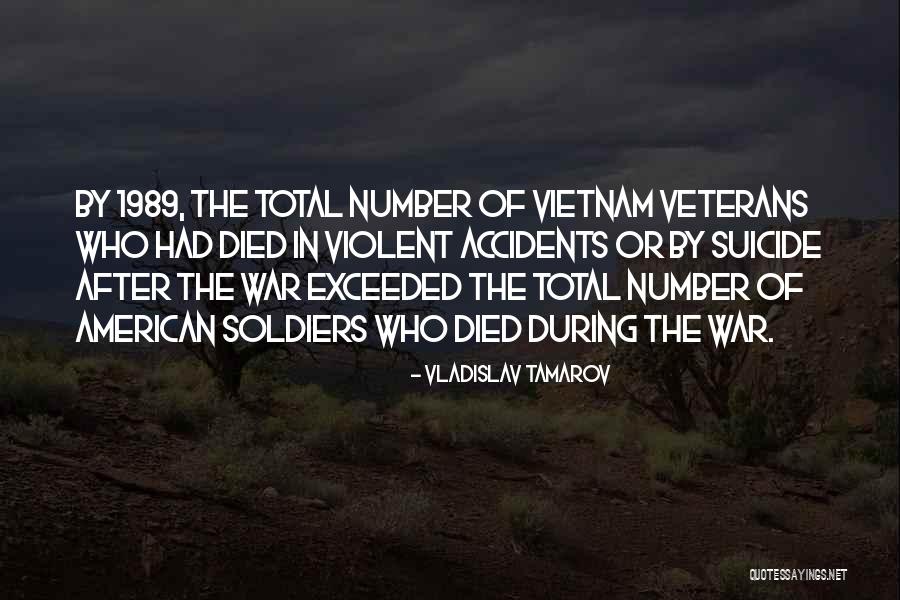
By 1989, the total number of Vietnam veterans who had died in violent accidents or by suicide after the war exceeded the total number of American soldiers who died during the war. — Vladislav Tamarov

The truth will set you free! — Linda Diane Wattley
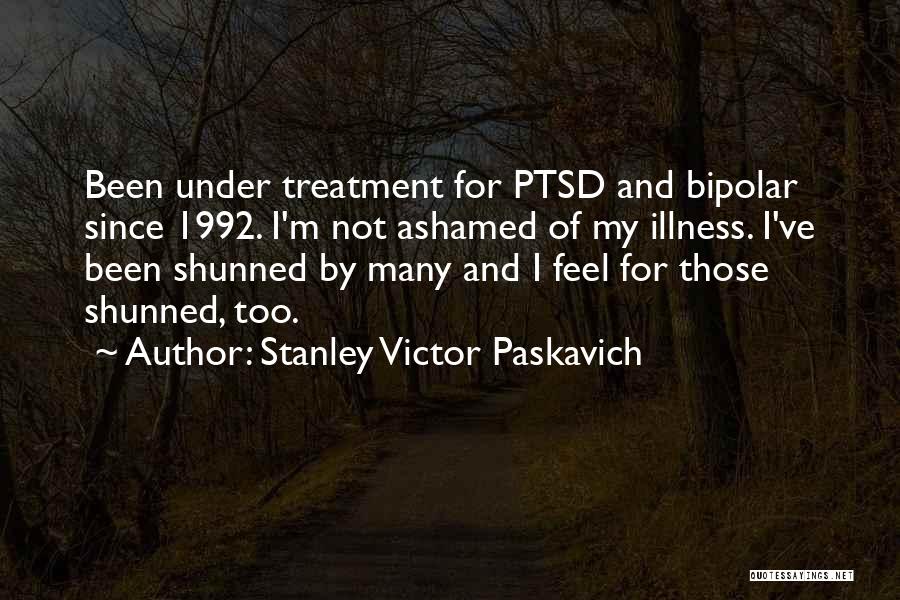
Been under treatment for PTSD and bipolar since 1992. I'm not ashamed of my illness. I've been shunned by many and I feel for those shunned, too. — Stanley Victor Paskavich
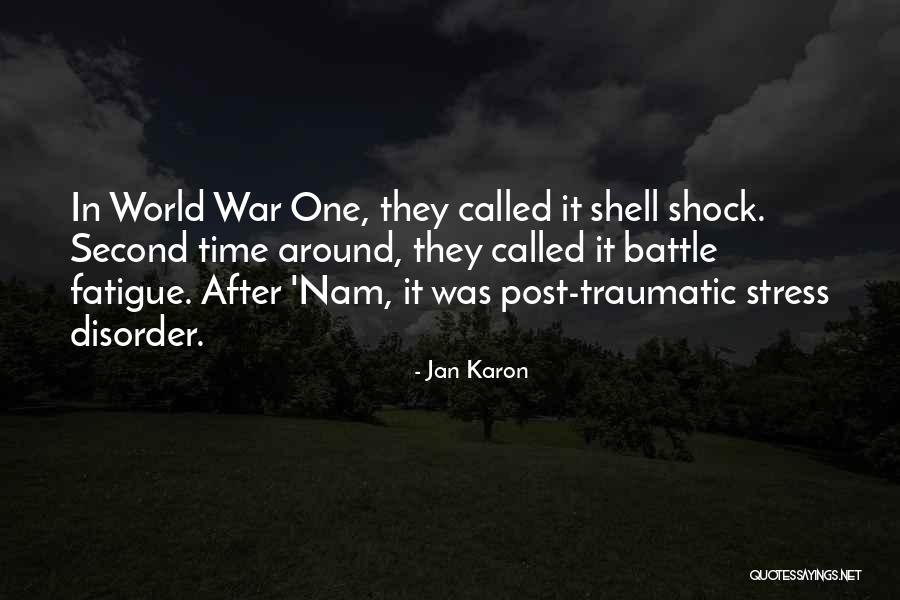
In World War One, they called it shell shock. Second time around, they called it battle fatigue. After 'Nam, it was post-traumatic stress disorder. — Jan Karon
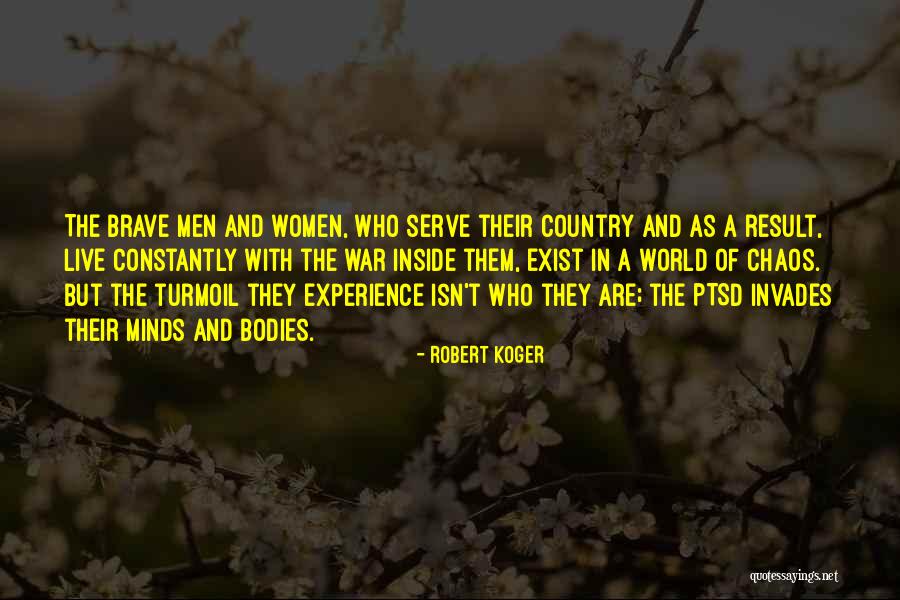
The brave men and women, who serve their country and as a result, live constantly with the war inside them, exist in a world of chaos. But the turmoil they experience isn't who they are; the PTSD invades their minds and bodies. — Robert Koger
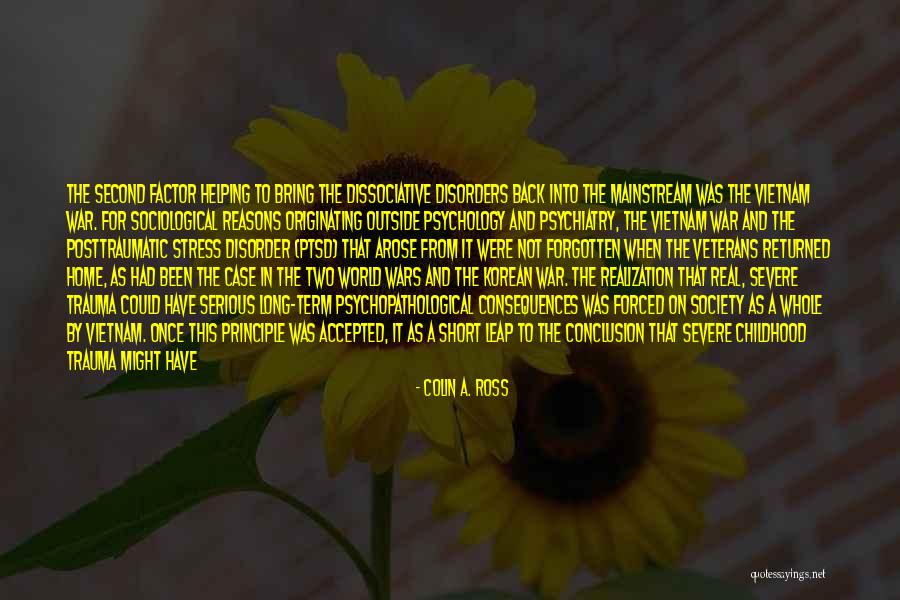
The second factor helping to bring the dissociative disorders back into the mainstream was the Vietnam War. For sociological reasons originating outside psychology and psychiatry, the Vietnam War and the posttraumatic stress disorder (PTSD) that arose from it were not forgotten when the veterans returned home, as had been the case in the two world wars and the Korean War. The realization that real, severe trauma could have serious long-term psychopathological consequences was forced on society as a whole by Vietnam. Once this principle was accepted, it as a short leap to the conclusion that severe childhood trauma might have serious sequelae lasting into adulthood. — Colin A. Ross
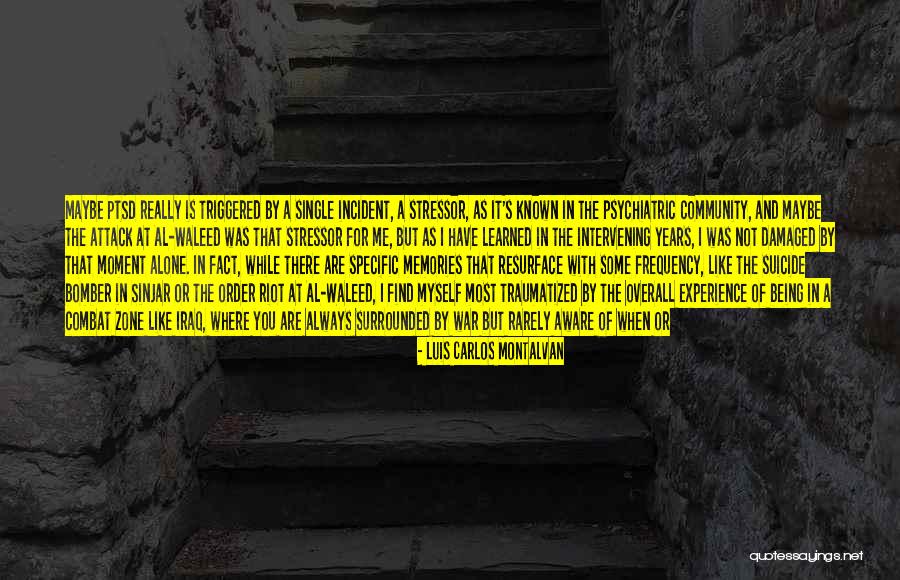
Maybe PTSD really is triggered by a single incident, a stressor, as it's known in the psychiatric community, and maybe the attack at Al-Waleed was that stressor for me, but as I have learned in the intervening years, I was not damaged by that moment alone. In fact, while there are specific memories that resurface with some frequency, like the suicide bomber in Sinjar or the order riot at Al-Waleed, I find myself most traumatized by the overall experience of being in a combat zone like Iraq, where you are always surrounded by war but rarely aware of when or how violence will arrive. Like so many of my fellow veterans, I understand now how that it is the daily adrenaline rush of a war without front lines or uniforms, rather than the infrequent bursts of bloody violence, that ultimately damages the modern warrior's mind. — Luis Carlos Montalvan
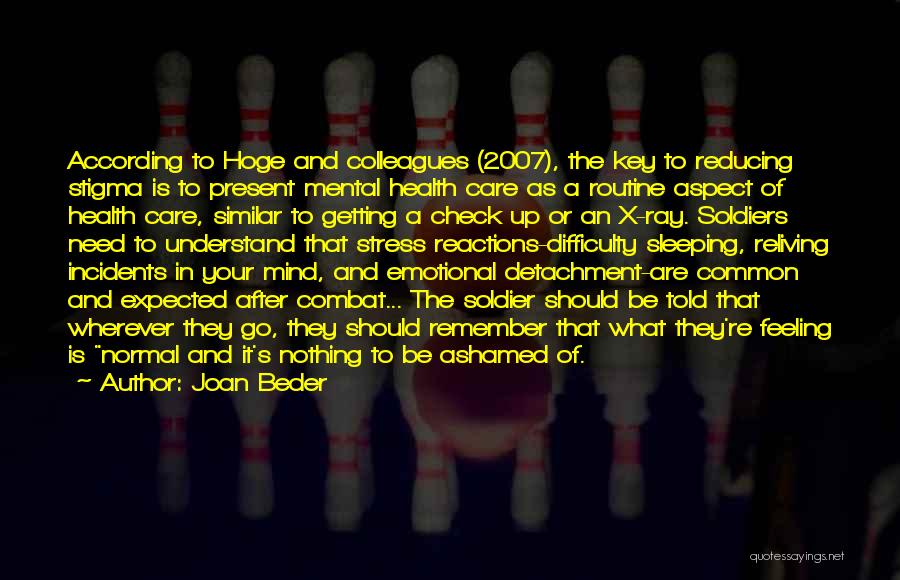
According to Hoge and colleagues (2007), the key to reducing stigma is to present mental health care as a routine aspect of health care, similar to getting a check up or an X-ray. Soldiers need to understand that stress reactions-difficulty sleeping, reliving incidents in your mind, and emotional detachment-are common and expected after combat... The soldier should be told that wherever they go, they should remember that what they're feeling is "normal and it's nothing to be ashamed of. — Joan Beder
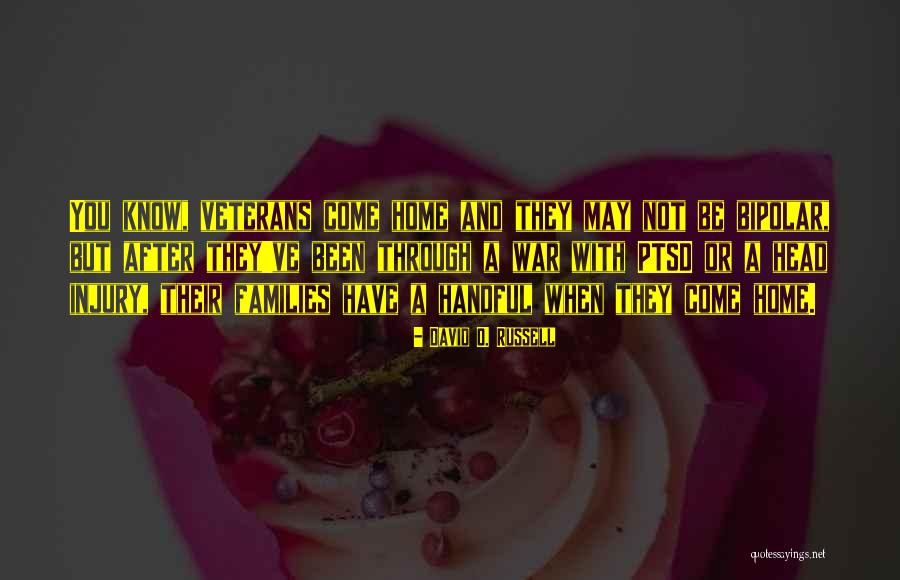
You know, veterans come home and they may not be bipolar, but after they've been through a war with PTSD or a head injury, their families have a handful when they come home. — David O. Russell






